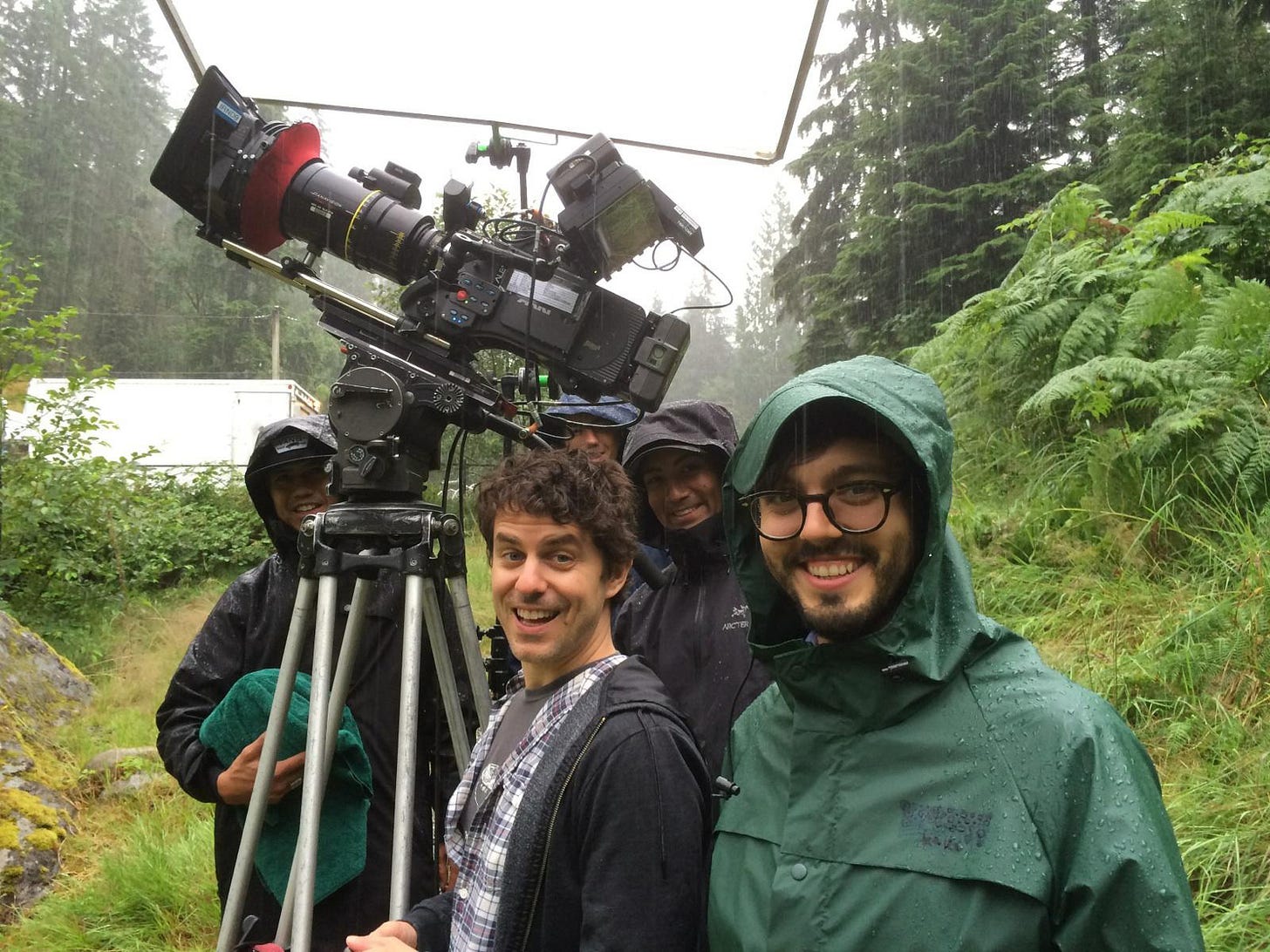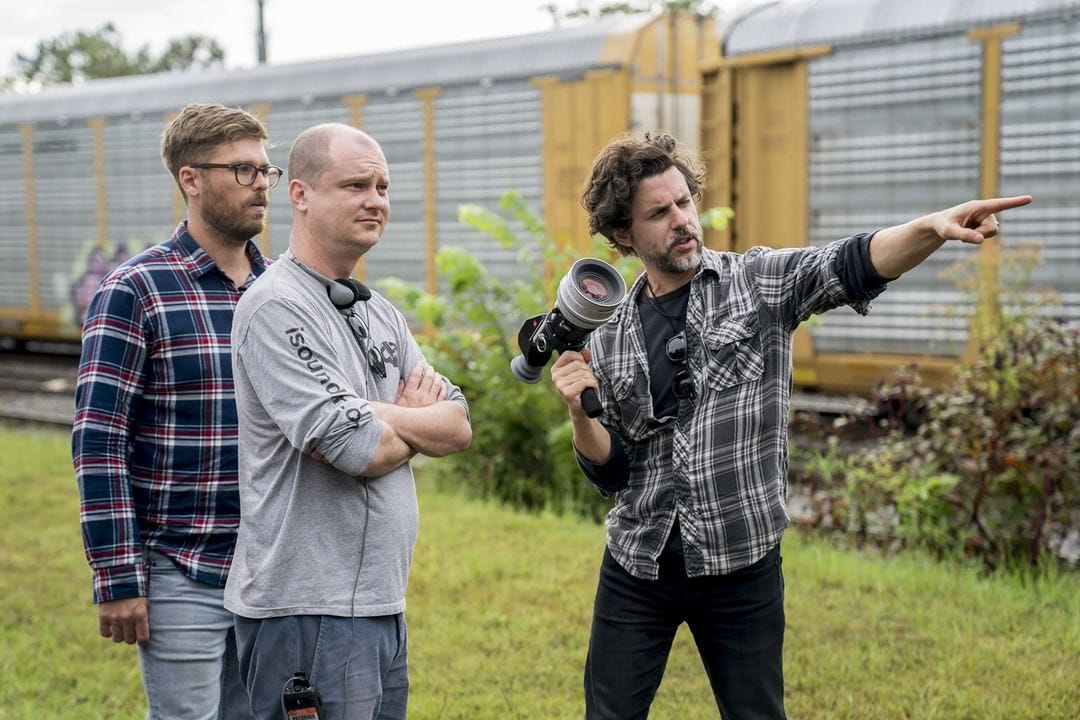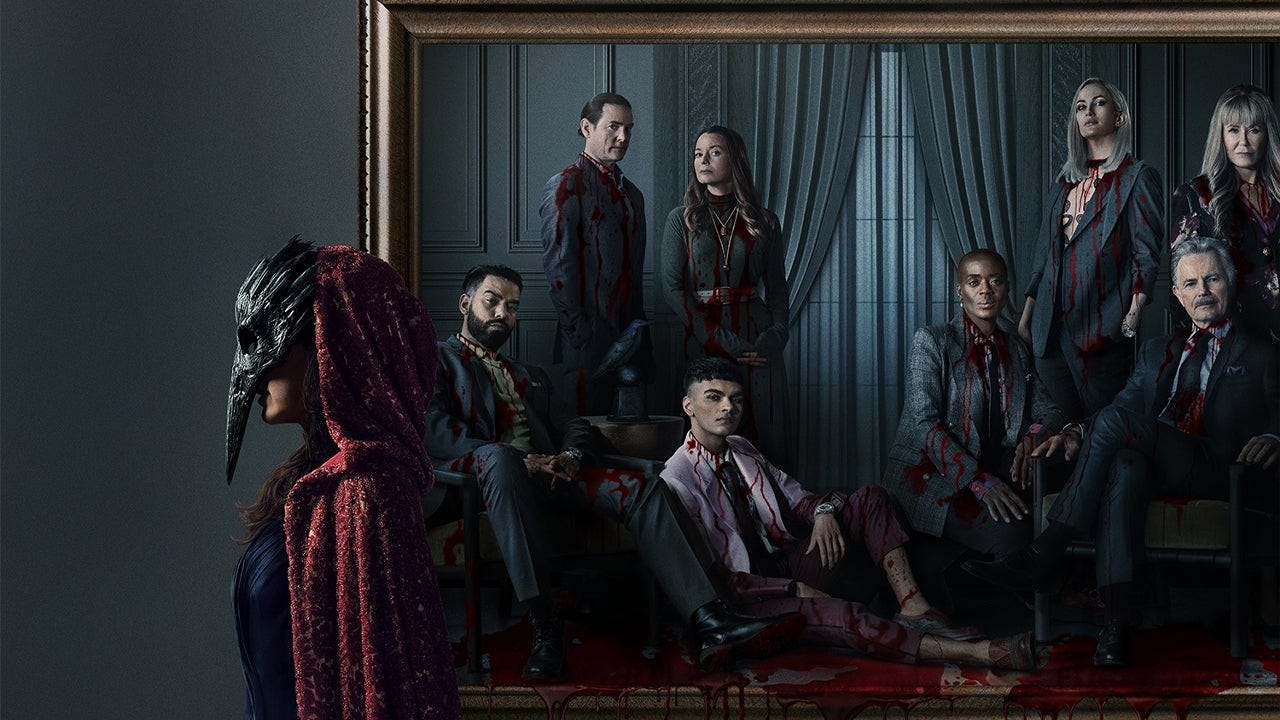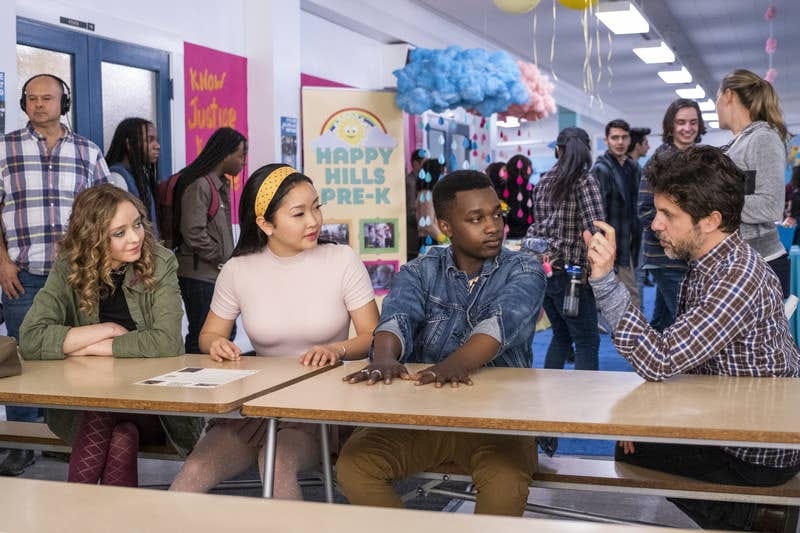INTERVIEW: DP/Director Michael Fimognari
Mike Flanagan's key collaborator spills the beans ahead of their new show, The Fall of the House of Usher.
Michael Fimognari was the cinematographer on my first film, The Cleanse. He’s since gone on to major films and TV (Dr. Sleep! Midnight Mass!) with frequent collaborator Mike Flanagan. I met Michael back in 2014 after interviewing a bunch of DPs. He was easy to talk to, laughed at my dumb jokes, and believed in over-preparing. I also liked that he had a few features under his belt. He really was an ideal collaborator on my first feature.
It’s a shame that he’s dead.
Just kidding. He’s alive and well. I reconnected with him ahead of the new show he shot and directed with Flanagan, premiering on Netflix Oct. 12.
Oh, hey dude. Welcome to www.BobbyMillerTime.com, the premiere website of our generation. This must be a pretty big honor for you.
This is the greatest thrill of my life unless I’m someday invited to Tea Time with Bobby Miller, in which case it will be the second-greatest thrill of my life. In all seriousness though, in summary and in conclusion, YES, it’s the greatest thrill of my life.
I know you as a cinematographer, but you’ve been directing a lot more lately. Can you talk about that transition? How do you see yourself these days?
Everything I did as a cinematographer was filtered through story and character, so the transition to directing was an expansion of that perspective. In my career, I’ve been fortunate to have a seat next to so many fantastic directors, including Mike Flanagan, Julia Hart, and Bobby Miller (WAIT, THAT’S YOU!), so I’ve seen many approaches to the work. Although I’m primarily focused on directing now, I love the visual design of filmmaking so much, so I continue to shoot when I direct, and I keep myself open to shooting for other directors too.
Mike Flanagan. You’ve been working with him for a long time. What keeps you coming back? I mean, obviously, he’s talented. But, like, does he make better jokes than I do? What is it?
I’m not comparing anyone’s jokes (I’m no Joke-ologist), but I will say the comedy is top-tier - and I mean that sincerely! Of course, it’s about the way the story is told, the way it’s visualized, and the work ethic behind the preparation and execution. But it’s also about being next to a person for days and weeks, and months and enjoying it. You and I were together for one summer on THE CLEANSE, and we had lots of good jokes (even on the hard days), which I think says a lot about our synergy and why I’d love to work with you again. Mike and I have spent the majority of the past 11 years working together, and over that time, we’ve built a creative language and process that is detailed and often non-verbal, and in that time, we’ve learned in addition to our aligned cinematic sensibilities, we share the same sense of humor and we laugh all the time. The comedic bits have evolved, become stories on their own, and some of them have leaked into our shows as inside jokes that are just for us.
What’s your collaboration process like?
Mike is a master storyteller, from concept to finish. And he keeps upping his game and raising the standard higher for the team. He’s written the scripts for everything we’ve done, and in many cases, he’s created the stories too, so he intimately knows why everything is there, he knows every character’s intentions and backstory, and his story craft is bulletproof. Our process has evolved quite a bit over the years. It started with some paper scribbles and spreadsheets, and today is recorded on video calls with digital drawings so that we have a reference archive. We first read the script together, talk about story and character, and define the tone. The deck is built from those discussions, and I’ll refine that as we build a shortlist.
The shotlist begins with Mike drawing out specific character behavior in overhead location plans (or he’ll create set plans for what he wants a space to look like). Next he’ll plot out the shots and camera moves in equally specific terms. I’ll ask questions or offer ideas, and we’ll call that the first draft of the list. Later I’ll translate that plan into formal overhead diagrams and a very descriptive shotlist, which reveals more questions and discoveries, leading to a polish. Once we’re feeling good about it, those formal plans are shared with the entire crew.
My cinematography breakdown is built from those plans, so the equipment required and the time needed to execute each shot is provided to the crew as well. In recent years, most of our sets are stage builds, so these overheads are the driving force for the Art Dept designs, which then goes through a separate approvals process for Mike and I to determine how the sets will work for blocking, camera, and lighting. Once the stage plans are approved, the shotlist is updated yet again so that the plans in everyone’s hands on the shoot day reflect the actual physical space in which we’re shooting, as well as the mechanics of the build (for example, if a crane is needed for a specific shot, then the walls that need to move have been built for that kind of flexibility and it’s marked as such). The goal is to structure our daily schedule for maximum efficiency. And the best part is that within that detailed plan, we’ve given ourselves the tools to pivot if we feel the blocking or shotlist needs to change on the day.
How did you approach the episodes you directed in The Fall of the House of Usher?
I’ve decided to shoot when I direct. I find the visual expression to be a partner with the blocking, and I feel it’s a natural expansion of my skill as a storyteller. I go through the same process I described above, except I’m doing the first part in my head, then making the formal shotlist for the crew. Instead of relying on a separate cinematographer, I have close collaborations with the showrunner or creative producer, and editor, which has been terrific. Mike and I did a cool thing on The Fall of the House of Usher where we each directed four episodes, and I shot all eight episodes. In that workflow, Mike set the tone in the plan for his episodes, then I built plans for my episodes and shared them with him (he was the showrunner) so we had continuity in our execution.
When we worked together, you had young kids. At the time, I was a different person. It was my first feature, and the film came before everything in my life. I was laser-focused and working all hours. So, when I saw you taking time out with your family on the weekends, I was like. “HEY WHAT GIVES! THERE ARE NO BREAKS!” I have apologized for this several times. And I’m embarrassed to admit it here, on www.BobbyMillerTime.com, the premiere website of our generation. This is a long-winded way of asking: How have you balanced being a father and working in this industry?
Well first, I applaud you for doing the hard, often unseen work of the PREPARED director (yes, I’m making a distinction here between prepared and unprepared directors). Prepping and shooting is truly exhausting when you are evaluating and putting creative intention into every choice. There are no days off as a director, and it’s hard to come by an hour of personal time.
But the important question you’re asking is about balancing parenthood and the work. By far the most unforgivable part of our business is that it asks so much of our time, and it feels like an all-or-nothing proposition. Many of us have this unending passion for filmmaking that keeps the motor running every day and at all hours, so we put up with this work/life imbalance, but I don’t think it’s healthy.
I’ve asked producers over the years why we can’t do 10 hour days combined with an extended calendar and the answer is always about the cost of stage and equipment rentals, and cast schedules. It often feels like the only reason we stop shooting is because of the financial penalties associated with going past 12 hours, not the health or the family life of the people involved. I love the creative part, but the more I miss my kids’ lives, the more I hate the business part.
I’ve long felt that the push for unionization sweeping the United States is a direct result of the pandemic. People living in quarantine had time to reflect and re-examine their worth. Can you please agree with me so that I appear smart? If not, why am I wrong?
I’m not smart enough to get into a smart talk with you, Mr. Smart. Like most, the pandemic instigated significant, course-changing impacts on my life, and while I can’t speak to unionization as a ripple effect of the pandemic, I fully support unionization for all work. When I was trying to break into the film industry, I was a part of those grueling non-union shoots, and they were dangerous and mean. The people with the money were not looking out for us, and there was no protection if we didn’t get paid (which happened to me often… those of you who still owe me for the work I did, you know who you are). Even after joining the union for many years, I had to call the union to report unsafe conditions, unpaid crew, or other violations. Without that union collective (in all industries), I feel that the people with the money will take advantage of the people who need to work. GO UNION.
Has the pandemic changed how you approach the business?
The main change is that I’m doing even more to make time for my kids. Since we had to do so much work from a distance during the pandemic, we learned what can be done well remotely, so I’ve taken advantage of those opportunities. Most of that is in post-production, which has allowed me to have more time with my kids during the editing and color processes since I can stay home until the final mixes, color, and scoring.
You moved back to Pittsburgh from LA before it was cool to do so (pre-pandemic). Your logic at the time was, “nothing shoots in LA anyways.” Are you still there? And how has it been to work “in Hollywood” from Pittsburgh?
I’m still in Pittsburgh and love it. It’s a small city with big city stuff. I’ve never worked in Pittsburgh, but the move was intended to create more space, provide good public schools for my kids, and to experience autumn colors and winter snow - all of which has worked out great. I’ve also enjoyed the clear break from the film business when I’m at home.
There you have it. Another classic interview. I can’t wait for the praise to roll in on this one. Am I the next Charlie Rose? Many people are saying it. Except for the part where he got canceled.
Thanks to Michael for his time. And be sure to check out The Fall of the House of Usher on Netflix October 12th.





